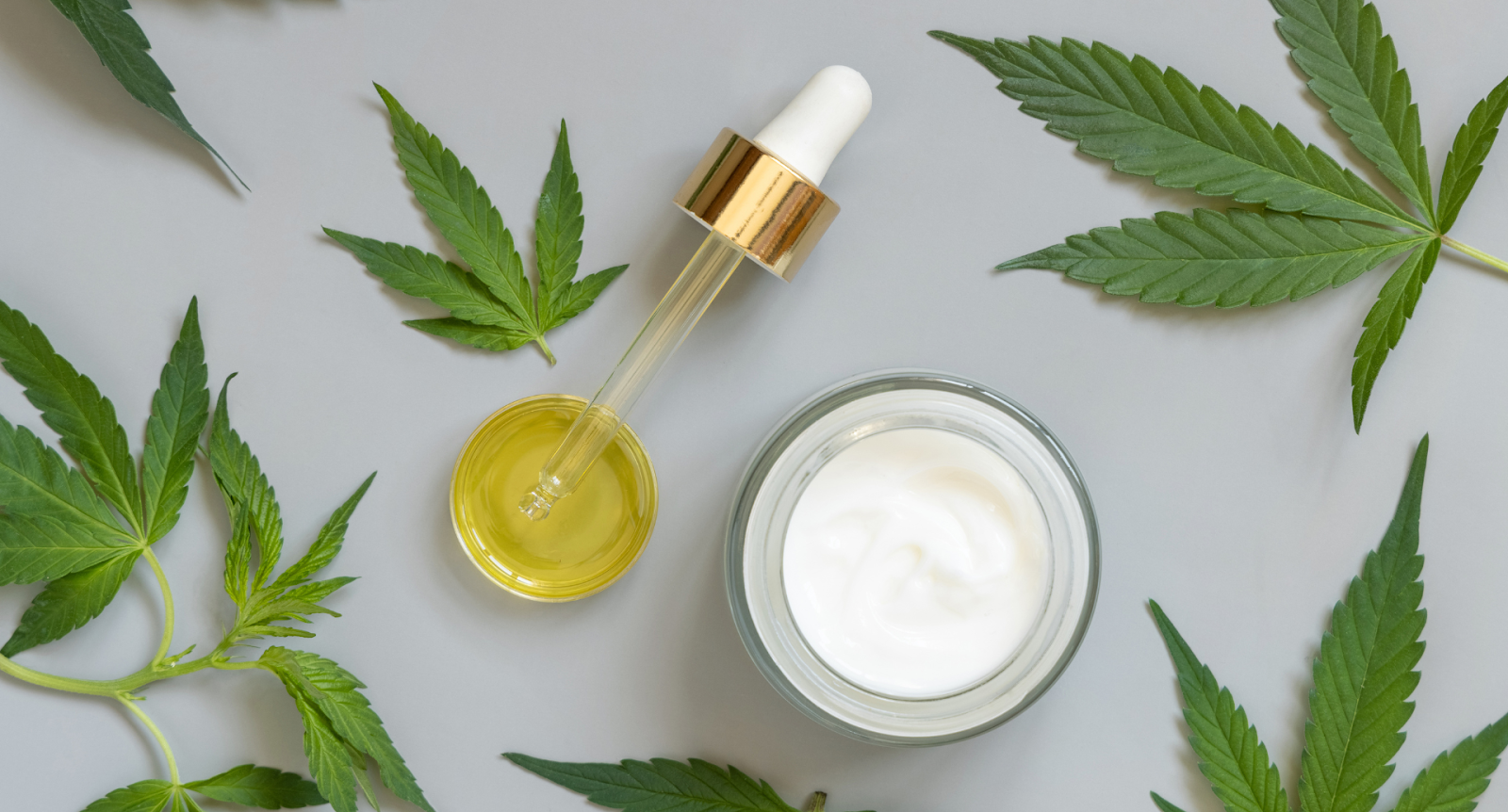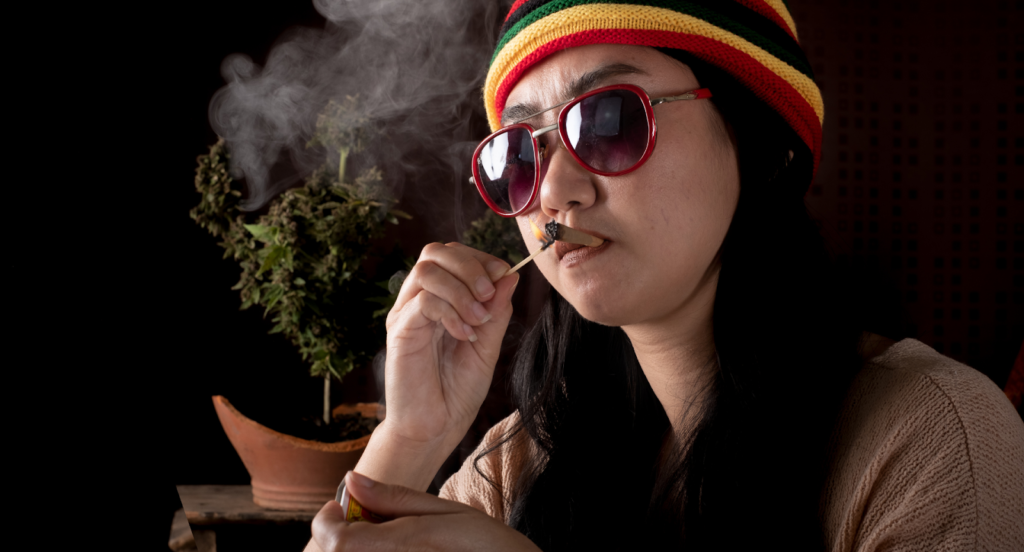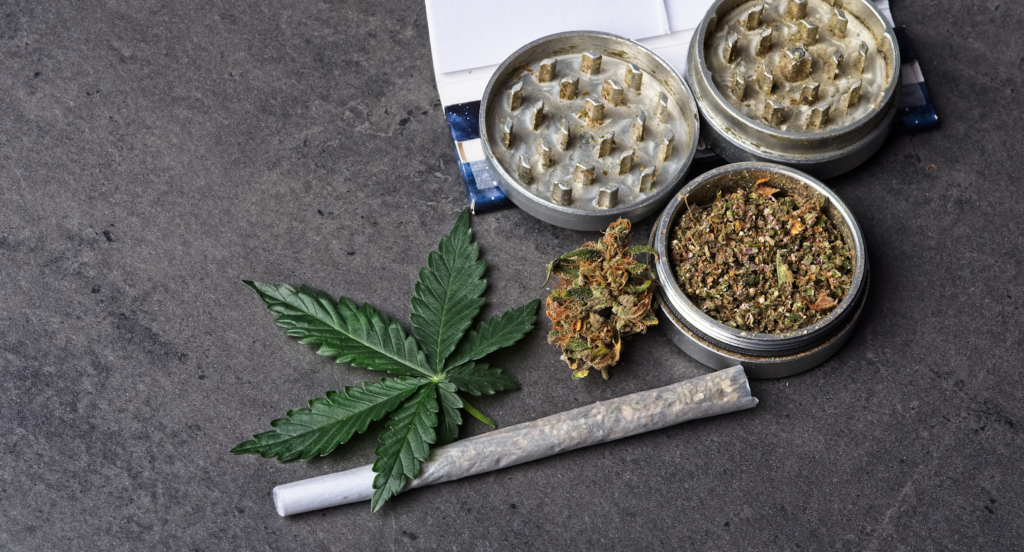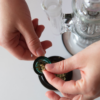No products in the cart.
Return To ShopExploring The Relationship Between Cannabis And Creativity
Key Takeaways:
- Creative Boost Through Cannabis: Learn how cannabis interacts with the brain to enhance divergent thinking and alter perceptions for new ideas.
- Strains and Tools for Artists: Discover the best cannabis strains and smoking accessories to support creative pursuits.
- Balanced Use for Maximum Impact: Find practical tips on using cannabis responsibly for creativity without over-reliance.
Creativity often feels like a puzzle, with its pieces scattered across the mind, waiting for a spark to assemble them. For generations, cannabis has been that spark for many artists, musicians, and thinkers—a mysterious muse that transforms ordinary moments into bursts of inspiration. But what makes cannabis such a profound partner for the creative process, and does it truly unlock the potential within?
At Happy Head Shop, we’ve built a reputation as the go-to destination for all things cannabis lifestyle. As the nation’s premier online smoke shop, we offer a curated selection of high-quality bongs, pipes, and accessories designed to elevate your experience. We’re passionate about helping our customers explore the limitless possibilities that come with mindful cannabis use.
In this article, we’ll unravel the unique connection between cannabis and creativity, providing insights into its history, science, and practical applications for those eager to see the world—and their work—from a new perspective.
The Longstanding Connection Between Cannabis And Creativity
Cannabis has played a pivotal role in the evolution of creative expression across cultures and generations. From its sacred use in ancient rituals to its influence on modern art forms, cannabis has been both revered and debated for its role in enhancing imagination and breaking mental barriers. By delving into the historical, cultural, and scientific contexts of this relationship, we can uncover how this plant has shaped the way humans think, feel, and create.
The Role Of Cannabis In Ancient Cultures And Creativity
In ancient civilizations such as those in India and China, cannabis was not only prized for its medicinal properties but also for its mind-expanding qualities. It was commonly used during spiritual rituals, where its effects were believed to help participants transcend ordinary thought and access profound states of creativity. These practices underscore the plant’s historical importance in facilitating imaginative exploration and connecting with deeper levels of consciousness.
Cannabis And Creative Revolutions In The Modern Era
The relationship between cannabis and creativity evolved significantly during the 20th century, particularly in artistic movements like jazz and countercultural revolutions. Jazz musicians often credited cannabis for unlocking their ability to improvise complex melodies, while writers and visual artists found that it dissolved mental constraints, allowing for uninhibited expression. This period solidified cannabis as a tool for challenging conventional norms and exploring innovative ideas in art and music.
Breaking Mental Barriers: Cannabis As A Creative Catalyst
One of the most widely attributed benefits of cannabis in the creative process is its ability to break mental blocks. Many artists and writers report that it helps them access new perspectives and ideas that might otherwise remain obscured. The plant’s effects on perception and thought can inspire creators to step outside their usual frameworks, fostering innovation and experimentation.
Science And The Altered States Of Creativity
Scientific studies suggest that cannabis interacts with the brain’s endocannabinoid system, potentially enhancing certain cognitive functions tied to divergent thinking—a key component of creativity. While it does not guarantee artistic breakthroughs, cannabis alters neural pathways, which may explain why users often report heightened imagination and novel thought patterns. Understanding this scientific basis sheds light on the plant’s role in shaping the creative process.
The Cultural Debate: Inspiration Or Crutch?
Despite its widespread use, cannabis remains a topic of cultural debate when it comes to creativity. While some view it as a legitimate tool for artistic inspiration, others argue that it may create dependency or overshadow natural talent. This ongoing discussion highlights the nuanced relationship between cannabis and the creative process, emphasizing the need for balanced perspectives in its use.
Unlock your creative potential with premium cannabis tools and accessories from Happy Head Shop. Whether you’re an artist, musician, or simply exploring your imaginative side, we have everything you need to elevate your experience. If you want to learn more about enhancing creativity with the right products, visit Happy Head Shop and discover the perfect gear to inspire your journey. Let your creativity flow!
How Cannabis Shapes Emotional Creativity
Creativity extends beyond intellectual processes, encompassing the ability to express and connect deeply with emotions. Cannabis has a unique capacity to enhance emotional sensitivity, allowing users to tap into their feelings with heightened awareness. This connection to emotions can elevate creative works, making them more authentic and resonant, while also fostering a stronger connection with audiences.
Cannabis And Heightened Emotional Awareness
Cannabis can amplify emotional sensitivity, providing users with a clearer understanding of their feelings and the emotions of others. This heightened awareness often translates into creative work that feels more genuine and relatable. For writers, this might mean articulating complex, layered emotions more effectively, while musicians might channel raw feelings into melodies that deeply resonate with listeners.
The Influence On Artistic Expression Across Mediums
Different forms of art benefit uniquely from the emotional enhancement cannabis provides. Visual artists may notice that their work takes on a more vivid, emotionally charged quality as they access unprocessed thoughts and feelings. Similarly, performing artists, such as actors or dancers, might find cannabis helps them embody roles or movements with greater authenticity, leading to more impactful performances.
The Neurochemical Basis Of Emotional Creativity
The effects of cannabis on emotional creativity are largely tied to its influence on dopamine and serotonin, neurotransmitters associated with mood regulation. By promoting relaxation and emotional clarity, cannabis enables individuals to confront and channel feelings that might otherwise be suppressed. This neurochemical shift allows for more fluid emotional expression, enriching the depth and nuance of creative output.
Balancing Sensitivity And Productivity
While cannabis can enhance emotional sensitivity, it is not without challenges. For some, the heightened awareness of feelings can become overwhelming, leading to distractions or a loss of focus. Finding the right strain, dose, and environment is critical for ensuring that cannabis supports emotional creativity rather than hindering it. Striking this balance allows users to harness the plant’s benefits effectively.
Cannabis Strains Known For Boosting Creativity
For those seeking inspiration, certain cannabis strains are celebrated for their ability to unlock imagination and focus. These strains often strike a balance between relaxation and mental stimulation, providing the ideal state of mind for artistic and intellectual pursuits. By exploring the properties of different strains and terpenes, users can discover tailored effects to enhance their creative endeavors.
The Uplifting Power Of Sativa-Dominant Strains
Sativa-dominant strains are often associated with energizing effects that stimulate the mind and encourage brainstorming. Their ability to heighten cerebral activity makes them ideal for tasks requiring focus and innovation. Classics like Jack Herer, with its uplifting clarity, and Durban Poison, known for its mental energy, exemplify how sativas can fuel creative ambition, while strains like Sour Diesel add a dreamy, introspective quality.
Hybrids: Balancing Relaxation And Mental Stimulation
Hybrid strains combine the calming properties of indica with the mental sharpness of sativa, creating a balanced experience. Strains like Blue Dream promote imaginative thinking alongside a sense of relaxation, helping users maintain focus without feeling overwhelmed. Girl Scout Cookies (GSC), another popular hybrid, blends euphoria with mental stimulation, making it an excellent choice for prolonged creative sessions.
The Role Of Terpenes In Enhancing Creativity
Terpenes, the aromatic compounds in cannabis, significantly influence its effects, particularly on creativity. Limonene is prized for its mood-boosting and uplifting qualities, while pinene enhances focus and clarity, helping users stay grounded during creative projects. Myrcene, on the other hand, promotes relaxation, allowing ideas to flow freely without tension or distraction. These terpenes, individually or in combination, shape the nuanced experience of each strain.
Finding The Perfect Strain For Creative Expression
Creativity is a deeply personal experience, and the ideal strain varies from person to person. Experimentation is key, as individual responses to cannabinoids and terpenes differ. Starting with a low dose and observing the mind’s reaction allows users to identify what fuels their creativity, ensuring a safe and productive exploration of cannabis for artistic and intellectual growth.
The Debate: Does Cannabis Truly Enhance Creativity Or Just Change Perception?
The connection between cannabis and creativity is a topic of ongoing debate. While many artists and thinkers claim that cannabis enhances their creative abilities, others argue that it simply changes the way they perceive their creativity, rather than boosting it directly.
Creativity Or Illusion?
Cannabis is known to alter perception, allowing users to think in ways they might not ordinarily explore. This altered state often leads to a sense of heightened creativity, but some researchers argue it may simply be a shift in how the brain processes information. In other words, cannabis might make you feel more creative without necessarily improving your creative output.
Studies On Creativity And Cannabis
Scientific studies have shown mixed results. Some research suggests that low doses of THC can enhance divergent thinking—the ability to generate multiple ideas or solutions to a problem. However, higher doses tend to impair this process, leading to disorganized thoughts and reduced productivity. Additionally, studies highlight that individual differences play a huge role; what works for one person might not work for another.
The Subjective Experience
Creativity is inherently subjective. While cannabis might help some people break through mental barriers or approach problems from new angles, others may find it harder to focus or organize their ideas. The environment, mood, and strain of cannabis can all influence whether the experience is productive or frustrating.
A Matter Of Balance
Ultimately, the debate may come down to moderation and intention. Those who use cannabis thoughtfully, pairing the right dose with their creative practice, often report positive effects. On the other hand, overindulgence can blur the line between inspired thinking and aimless daydreaming.
Tips For Harnessing Cannabis For Creative Pursuits
Using cannabis to enhance creativity can be a rewarding experience if approached thoughtfully. Striking the right balance ensures that it serves as a helpful tool rather than a hindrance. Here are practical tips to make the most of cannabis in your creative process:
- Start Low, Go Slow: Begin with a low dose of cannabis, especially if you’re new to it or using it for creative purposes. A small amount is often enough to relax your mind and stimulate fresh ideas without overwhelming your thoughts. Gradually increase if needed, but always stay within your comfort zone.
- Choose the Right Strain: Not all cannabis strains are suited for creativity. Sativa-dominant strains or hybrids with uplifting terpenes like limonene and pinene are generally better for brainstorming and free-flowing ideas. Avoid indica-heavy strains if you’re trying to stay energized and focused.
- Set the Mood: Your environment plays a crucial role in your creative experience. Choose a space that inspires you, whether it’s a quiet studio, a bustling park, or your favorite writing nook. Pair the ambiance with music, visuals, or other sensory elements to amplify the creative vibe.
- Have a Clear Intention: Before consuming cannabis, define your creative goal. Are you brainstorming ideas, sketching, writing, or experimenting with new techniques? Having a purpose helps channel the effects of cannabis into productive energy rather than aimless wandering.
- Mix Cannabis With Other Creative Practices: Cannabis works best when paired with techniques that already spark your creativity. Whether it’s journaling, doodling, or playing an instrument, let cannabis enhance your existing skills rather than relying solely on it to generate ideas.
- Stay Mindful of Timing: Creativity often comes in waves. Use cannabis during the ideation or brainstorming phase, and save execution or refinement for a sober state. This ensures that your creative ideas are both inspired and actionable.
- Reflect and Adjust: After your creative session, take a moment to evaluate how cannabis affected your process. Were you more productive or just distracted? Did you enjoy the experience, or did it feel forced? Reflecting on your experience helps you tailor your approach for future sessions.
By following these tips, cannabis can be a valuable ally in unlocking creative potential while maintaining control over your process and outcomes.
Final Thoughts
The relationship between cannabis and creativity is both intriguing and multifaceted. For many, cannabis serves as a catalyst for fresh perspectives and imaginative thinking, unlocking new ideas and enhancing artistic expression. However, its effects are highly individual, with some finding inspiration while others may struggle with focus or develop over-reliance. Understanding how cannabis fits into your unique creative process is essential to using it effectively and responsibly.
Ultimately, creativity is a deeply personal journey, and cannabis is just one of many tools to explore it. By experimenting mindfully—whether through specific strains, low doses, or occasional use—you can discover how it enhances your self-expression without overshadowing your natural abilities. In the end, creativity comes from within, and cannabis can be a valuable companion in helping you tell your story or see the world in new ways.
Read also:
Frequently Asked Questions About The Relationship Between Cannabis And Creativity
Can cannabis help with creative problem-solving?
Yes, cannabis can encourage divergent thinking, which is useful for generating multiple solutions to a problem. It fosters open-mindedness and reduces conventional thought barriers.
Are there non-psychoactive cannabis options for creativity?
Yes, CBD-rich strains or products offer relaxation and focus without the psychoactive effects of THC, which some people find beneficial for creativity.
Does cannabis affect creativity differently for introverts and extroverts?
Cannabis may amplify an individual’s natural tendencies. Introverts might find it helpful for introspective creativity, while extroverts may enjoy social or collaborative creative tasks under its influence.
Is it possible to be productive and creative simultaneously while using cannabis?
Absolutely, but it depends on dosage, strain, and timing. Many users find that low doses of sativa strains help balance productivity with imaginative thinking.
Does cannabis make creativity more enjoyable or effective?
For many, cannabis enhances the enjoyment of creative activities by making them feel more immersive, even if it doesn’t necessarily improve the effectiveness of their work.
Can cannabis consumption lead to new artistic styles?
Yes, cannabis can help individuals break free from rigid thinking patterns, allowing them to experiment with novel approaches and techniques in their art or craft.
What’s the role of terpenes in cannabis-driven creativity?
Terpenes like limonene and pinene are believed to enhance mood and mental clarity, indirectly supporting creative thinking.
How long do the creative effects of cannabis last?
The effects can last anywhere from 2 to 6 hours, depending on the strain, dosage, and individual tolerance, making it ideal for shorter creative sessions.
What industries benefit most from cannabis-fueled creativity?
Industries like music, visual arts, writing, and design often see individuals utilizing cannabis to push creative boundaries and innovate.
Is cannabis creativity backed by science or anecdotal evidence?
While there’s scientific support for cannabis enhancing divergent thinking, much of its reputation for sparking creativity comes from anecdotal experiences.
Sources:
- Kowal, M. A., Hazekamp, A., Colzato, L. S., van Steenbergen, H., van der Wee, N. J. A., Durieux, J., Manai, M., & Hommel, B. (2015). Cannabis and creativity: highly potent cannabis impairs divergent thinking in regular cannabis users. Psychopharmacology, 232(6), 1123–1134. https://doi.org/10.1007/s00213-014-3749-1
- LaFrance, E. M., & Cuttler, C. (2017). Inspired by Mary Jane? Mechanisms underlying enhanced creativity in cannabis users. Consciousness and Cognition, 56, 68–76. https://doi.org/10.1016/j.concog.2017.10.009
- Jones, K. A., Blagrove, M., & Parrott, A. C. (2009). Cannabis and Ecstasy/MDMA: Empirical Measures of Creativity in Recreational Users. Journal of Psychoactive Drugs, 41(4), 323–329. https://doi.org/10.1080/02791072.2009.10399769
- Minor, K. S., Firmin, R. L., Bonfils, K. A., Chun, C. A., Buckner, J. D., & Cohen, A. S. (2014). Predicting creativity: The role of psychometric schizotypy and cannabis use in divergent thinking. Psychiatry Research, 220(1-2), 205–210. https://doi.org/10.1016/j.psychres.2014.08.044
- Warnick, B. J., Kier, A. S., LaFrance, E. M., & Cuttler, C. (2021). Head in the clouds? Cannabis users’ creativity in new venture ideation depends on their entrepreneurial passion and experience. Journal of Business Venturing, 36(2), 106088. https://doi.org/10.1016/j.jbusvent.2020.106088











